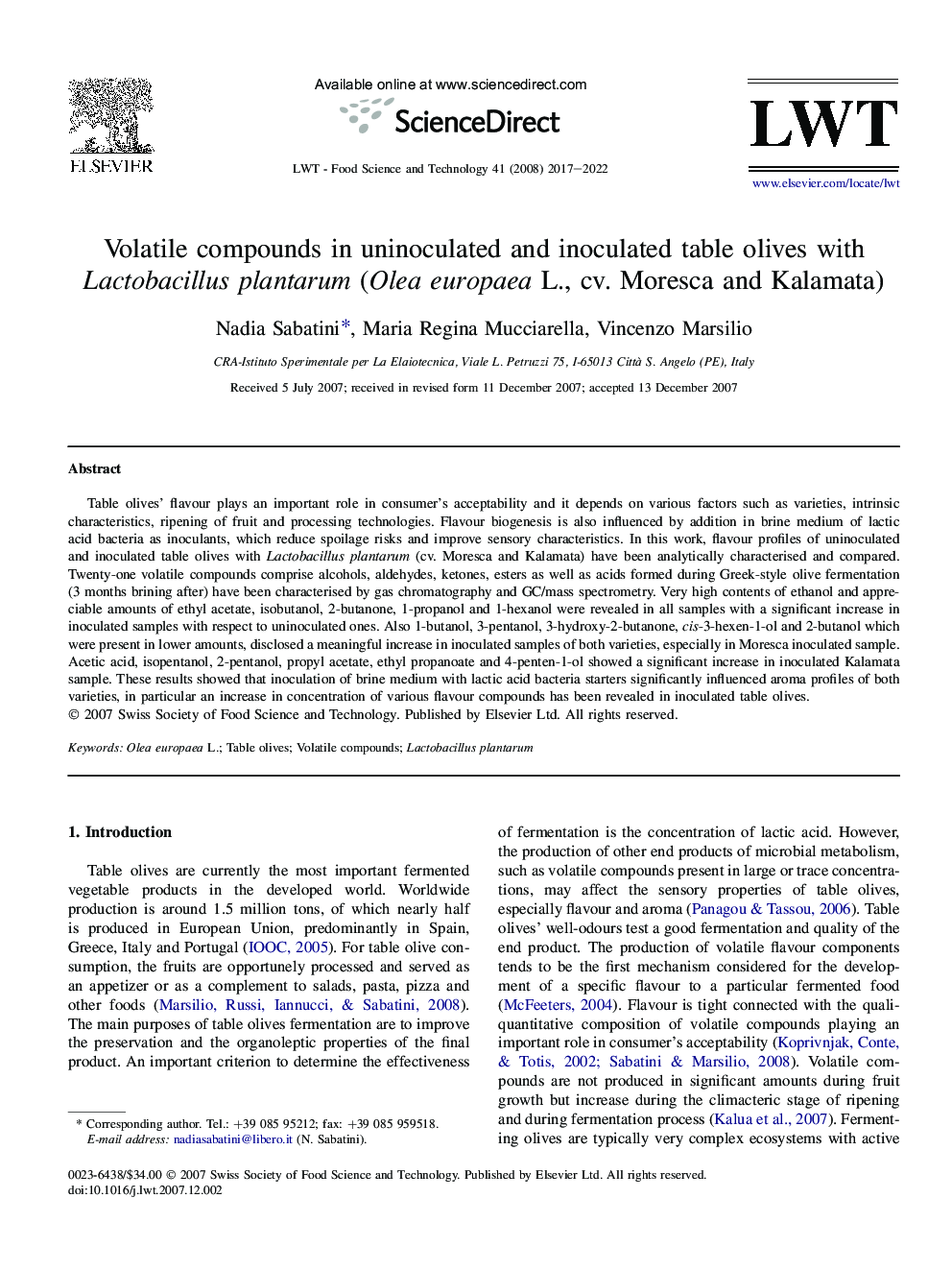| Article ID | Journal | Published Year | Pages | File Type |
|---|---|---|---|---|
| 4565141 | LWT - Food Science and Technology | 2017 | 6 Pages |
Table olives' flavour plays an important role in consumer's acceptability and it depends on various factors such as varieties, intrinsic characteristics, ripening of fruit and processing technologies. Flavour biogenesis is also influenced by addition in brine medium of lactic acid bacteria as inoculants, which reduce spoilage risks and improve sensory characteristics. In this work, flavour profiles of uninoculated and inoculated table olives with Lactobacillus plantarum (cv. Moresca and Kalamata) have been analytically characterised and compared. Twenty-one volatile compounds comprise alcohols, aldehydes, ketones, esters as well as acids formed during Greek-style olive fermentation (3 months brining after) have been characterised by gas chromatography and GC/mass spectrometry. Very high contents of ethanol and appreciable amounts of ethyl acetate, isobutanol, 2-butanone, 1-propanol and 1-hexanol were revealed in all samples with a significant increase in inoculated samples with respect to uninoculated ones. Also 1-butanol, 3-pentanol, 3-hydroxy-2-butanone, cis-3-hexen-1-ol and 2-butanol which were present in lower amounts, disclosed a meaningful increase in inoculated samples of both varieties, especially in Moresca inoculated sample. Acetic acid, isopentanol, 2-pentanol, propyl acetate, ethyl propanoate and 4-penten-1-ol showed a significant increase in inoculated Kalamata sample. These results showed that inoculation of brine medium with lactic acid bacteria starters significantly influenced aroma profiles of both varieties, in particular an increase in concentration of various flavour compounds has been revealed in inoculated table olives.
